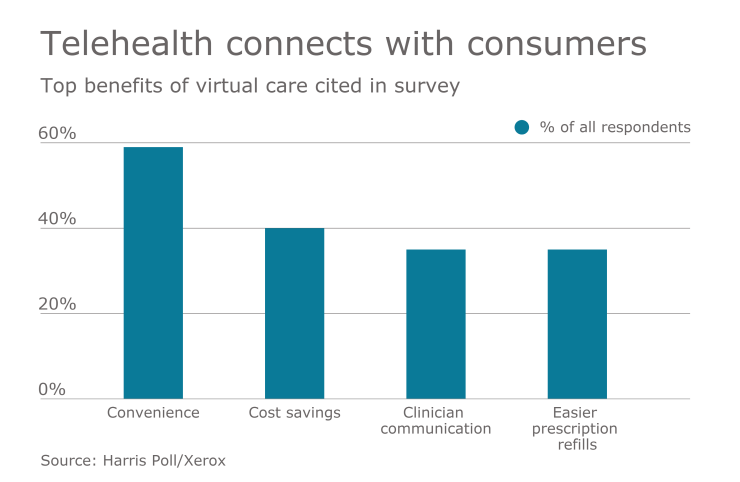Harvard Pilgrim Health Care is now providing a telehealth offering to its fully insured members who deal with mental health issues due to chronic physical conditions.
In July, the not-for-profit health insurer that serves New England, began offering AbleTo, a telehealth therapy program that helps members cope with mental health issues. Created by technology provider AbleTo, the telehealth program is a HIPAA-compliant video and telephone platform that remotely connects members with licensed therapists and behavioral coaches via smartphone or video services.
The platform uses an algorithm that identifies Harvard Pilgrim members dealing with both chronic medical conditions and behavioral health issues, says John O’Connell manager of vendor relations at Harvard Pilgrim. The algorithm examines a member’s medical, behavioral health and pharmacy data, and determines the best appropriate forms of mental health service, he says.

“Maybe they have some behavioral health issues but it appears to be under treated,” O’Connell says.
Harvard Pilgrim is currently engaged in a year-long pilot program with AbleTo. Once a patient has elected to participate in the program, they start 8 to ten weeks of cognitive behavioral therapy that includes two 45-minute therapy sessions twice a week. In 2012, AbleTo launched a similar partnership with Aetna to provide therapy and behavioral coaching to diabetics living with depression in 10 states.
“Chronic health conditions or exposure to traumatic conditions can lead to depression, anxiety and stress,” says Michael Sherman, chief medical officer at Harvard Pilgrim. “These conditions often hinder an individual’s medical recovery and make them less able to cope with daily living. By helping our members treat their behavioral health issues, we can support their medical health and their enjoyment of life.”
People living with chronic medical conditions like cancer and diabetes are at a higher risk for depression,
Telehealth platforms have been growing in popularity for physical health issues and doctor and nurse practitioner visits but AbleTo is one of the first solutions to add a mental health component.
Some experts argue that offering a telehealth benefit can
The partnership between Harvard Pilgrim and AbleTo is still new, says April Greene, vice-president of population health and clinical operations at Harvard Pilgrim Health Care, and the company is still determining the long-term impact of offering telemedicine to its customers. But the insurer is hoping that AbleTo will improve the daily lives of patients living with chronic medical conditions.
“The skills that they really try to work with the member or the patient on is managing stress, for example, overcoming barriers to positive change, engaging more fully in meaningful activities,” Greene says. “Really those foundational things that are changing the negative thought patterns to the positive and really do seem to make a huge difference in their mental and medical conditions.”
Harvard Pilgrim estimates that “hundreds of thousands” of plan participants would have access to the telehealth program. In a recent press release, the insurer reported it has 1,226,379 members living in Connecticut, Maine, Massachusetts and New Hampshire.





